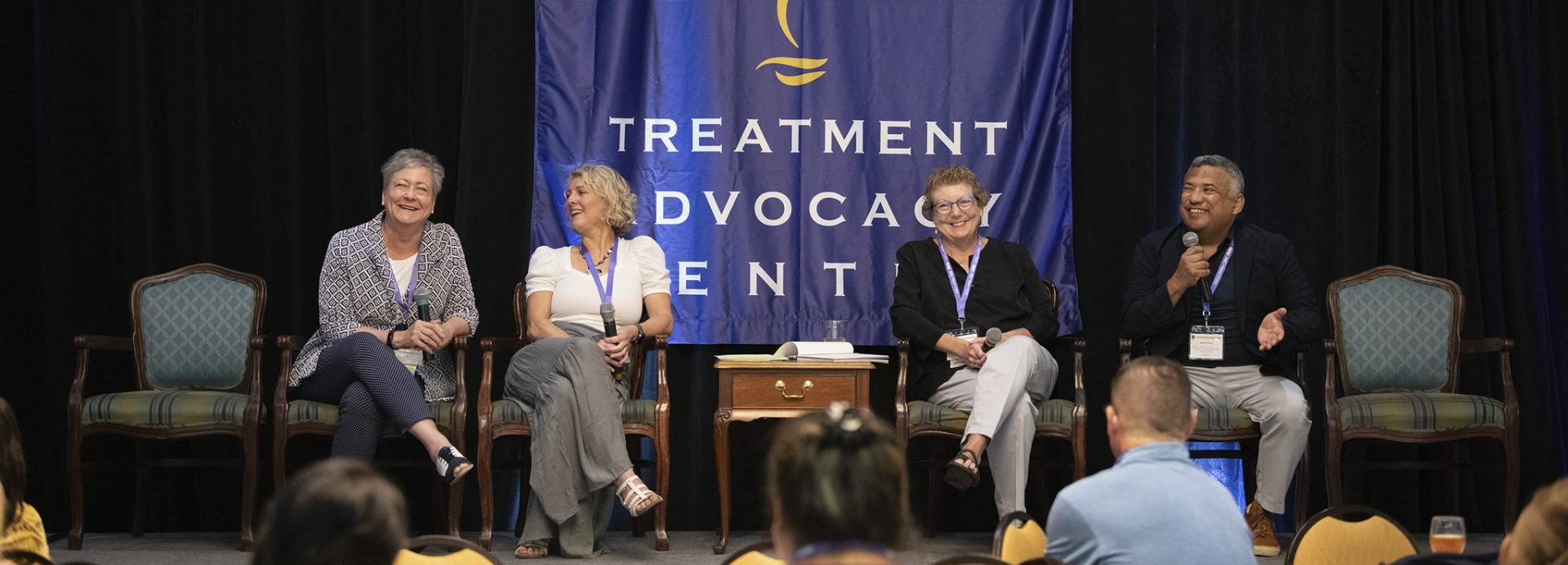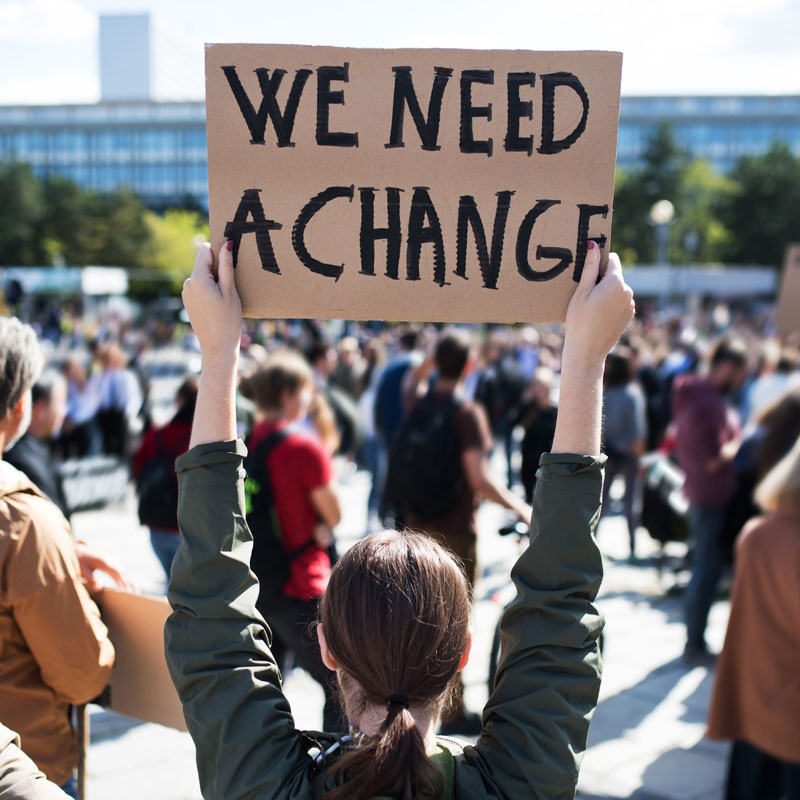What is Assisted Outpatient Treatment?
Assisted outpatient treatment (AOT) is the practice of providing outpatient treatment under civil court order to individuals with severe mental illness (SMI) who have demonstrated difficulty engaging with treatment on a voluntary basis. When systematically implemented and adequately resourced, AOT can dramatically reduce hospitalization, criminalization, and other adverse outcomes for its target population. Although AOT is authorized by law in nearly every state, most states have a substantial unmet need for programmatic implementation on a local level.
Every Community Needs an AOT Program
At its core, AOT is a legal procedure, authorized by law in all but three U.S. states to mandate outpatient mental health treatment for a vulnerable individual. But to unlock the maximum potential utility of this practice, a community must establish an AOT program – an organized, collaborative effort by the court system and treatment system to actively identify individuals in need of AOT, ensure that they receive the high-quality services they need, and transition them back to voluntary care when appropriate. Treatment Advocacy Center is working towards the day when every community in the nation has an AOT program.
NEW RELEASE
Dismiss Upon Civil Commitment with AOT: One Alternative to the Competency Restoration Crisis
A Handbook for Advocates and Implementers
Click here to see if an AOT program is available in your community
Frequently Asked Questions About AOT
Most importantly, AOT can dramatically reduce hospitalization and criminal legal involvement for its target population. As a corollary, AOT can dramatically reduce the cost and strain to treatment systems struggling to serve individuals “caught in the revolving door” of hospitalization, incarceration, and homelessness. AOT has also been shown to reduce a range of harmful behaviors and improve participants’ sense of personal engagement in their treatment. For more information on the research showing these and other benefits of AOT, check out the AOT Resource Library!
AOT is not appropriate for all (or even most) individuals with severe mental illness. It is an intervention designed for the small subset who have demonstrated an inability to maintain treatment engagement on a voluntary basis (often due to anosognosia — an inability to recognize their own illness and need for treatment), resulting in repeat hospitalizations and/or arrests. Many state AOT laws are limited in application to individuals with this personal history. Although AOT can benefit many individuals who struggle with substance use disorders in addition to their mental illness, there is no research supporting the efficacy of AOT when a substance use disorder is the primary diagnosis.
In communities where AOT has been implemented as a formal program, the mental health system itself — as represented by a government agency, community-based provider or treating hospital — takes the initiative to identify an individual who meets the legal criteria for AOT and bring the matter to court. Most typically, individuals are referred to the program for AOT consideration upon their discharge from a hospital or jail, or after being determined to not currently meet criteria for hospital commitment despite a clear need for better engagement with outpatient care. Many states allow family members (and sometimes other private parties) to petition the court for an AOT order. However, in areas where AOT programs are in place, family members are usually content to express their wish for AOT to program representatives and leave it to the program to take legal action.
It is not unusual or alarming for an AOT participant to miss one or more scheduled appointments, or even to stop taking prescribed medication, in violation of the AOT court order. This alone would not be legal grounds to revoke outpatient status and commit the person to a hospital. (With or without AOT, hospital commitment requires the same findings of need under state law.) Nor should it ever be grounds to hold a participant in contempt of court (a counter-therapeutic response prohibited in many states) or to forcibly administer medication. Instead, non-adherence to the court order should trigger a re-evaluation of the person’s current clinical needs (which may require a short-term hold for a psychiatric exam) and a re-appearance before the judge to consider a change in legal status. Experience shows that this is all the “teeth” an AOT order needs to be effective.
It should be well within the means of any community offering outpatient mental health services to individuals with severe mental illness to operate an AOT program – at least on a small scale. The costs of the AOT program itself are modest, and mostly limited to the costs of monitoring participants and providers combined with the court resources devoted to holding hearings and (optional) additional oversight. Since AOT neither brings new individuals into the public mental health system, nor requires greater outlay for outpatient services than would otherwise be incumbent upon the community to provide, it should not be viewed as a driver of service cost. (Which is not to suggest that AOT can be effective without high-quality treatment — only that treatment systems have an independent responsibility to provide this to all clients.)
Ready to move forward with AOT implementation?
Choose the path that fits your current stage in the process:
Join the AOT Learning Network
The AOTLN is a virtual network to keep you engaged with your counterparts from across the United States and facilitate the sharing of resources, great ideas, and common concerns regarding Assisted Outpatient Treatment.
AOT Resource Library
Documents, forms, research and more!
Contact Us
Treatment Advocacy Center is dedicated to making AOT a routine practice of every local mental health system in the United States. If you are looking for help in championing, developing, or improving an AOT program in your community, please contact us.



